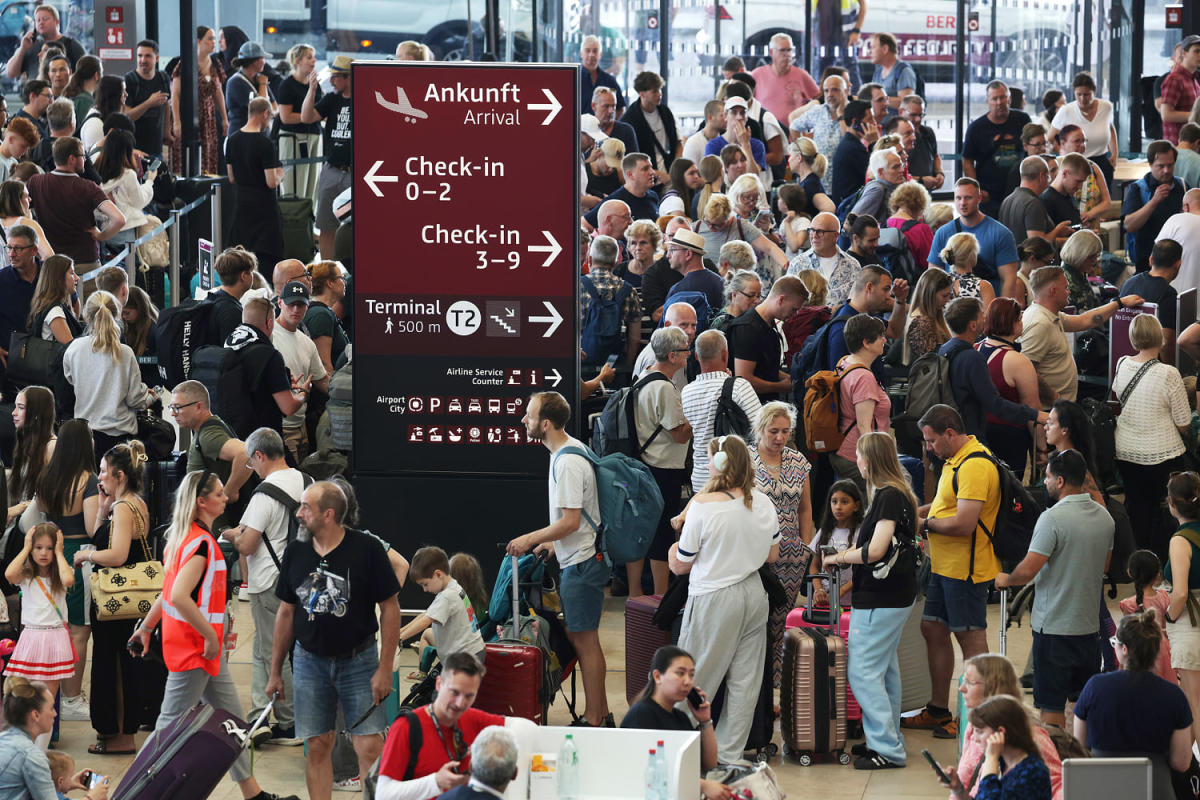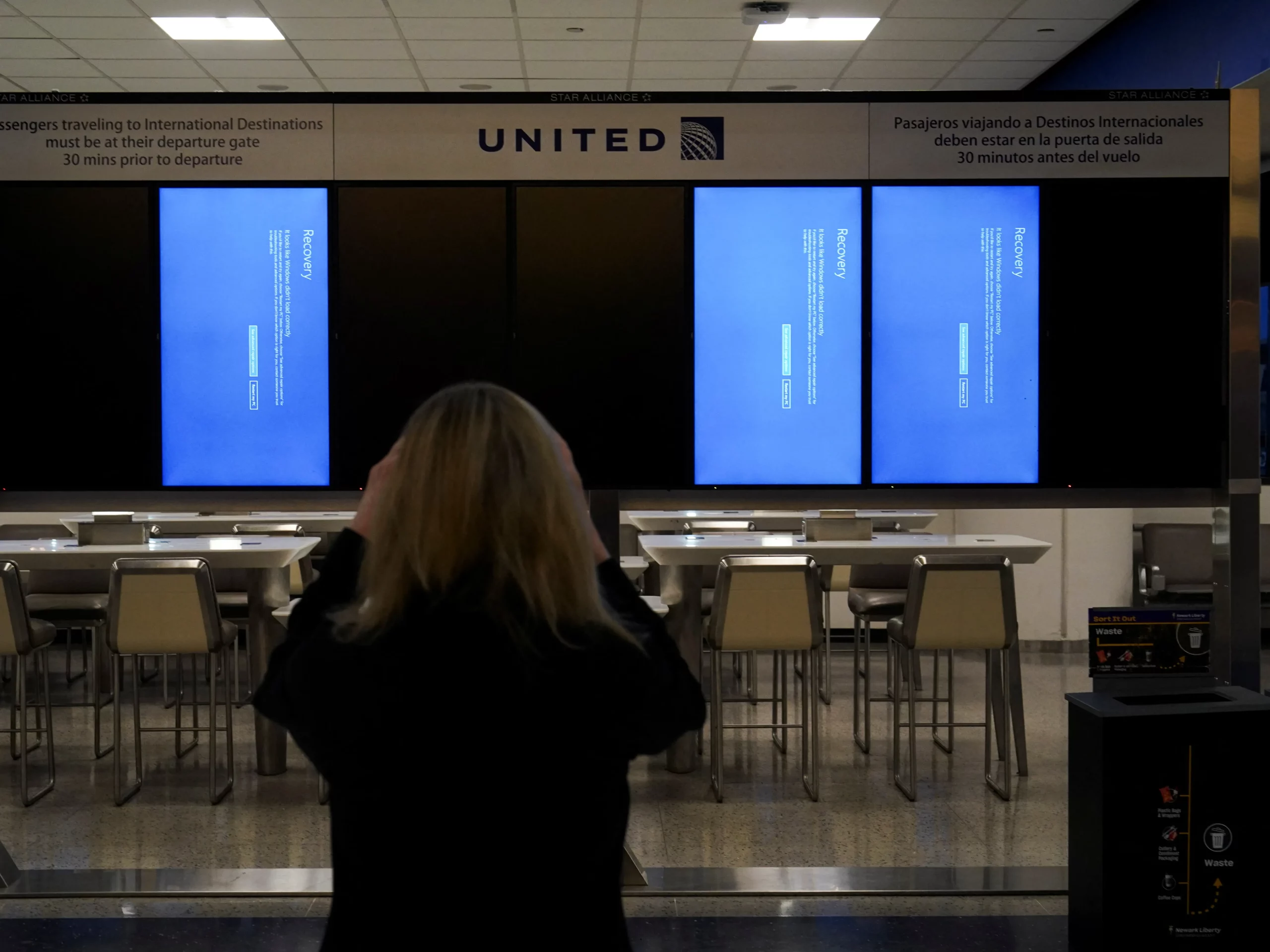Thousands of flights were canceled and delayed across the world, including the United States, on Friday due to a Microsoft system outage that affected the backend IT systems of many airlines. According to cybersecurity firm CrowdStrike, an update to its software impacted Microsoft’s Windows operating system, which is integral to many airline operations, including reservations, flight scheduling, and other critical functions.

Impact on Airline Operations
The CrowdStrike outage primarily affected airlines’ reservations and scheduling systems. The aviation industry depends on a network of overlapping technologies, from flight control software in cockpits to tracking software in Federal Aviation Administration (FAA) control towers. Although the FAA and most airports did not report outages in their systems, the interconnected nature of aviation technology meant that the airlines had to work together to address the issue.
In response to the outage, the FAA issued ground stops for several carriers at the airlines’ request. This required operators to pause departures while the problem was resolved. However, flights already in the air were not impacted by the outage. William J. McGee, senior fellow for aviation and travel at the American Economic Liberties Project, explained the complexity of airline IT systems. “I don’t think the average passenger understands it’s not like there’s one big system that’s running everything. It’s multiple systems, and it only takes one to knock it out.”
Passenger Guidance and Future Implications
Airlines may take several days to fully recover from the disruption. Previous IT meltdowns, such as the one Southwest Airlines experienced over the 2022-2023 winter holidays, demonstrated that operations could take nearly ten days to normalize. “A thunderstorm that lasts 15 minutes can cancel flights for 12 hours,” McGee noted. He advised travelers to expect residual effects from the outage, potentially extending through the weekend. In response to the outage, many airlines issued waivers allowing affected passengers to rebook flights for later dates. The Department of Transportation classified Friday’s outage impacts as “controllable” by airlines, meaning that carriers are responsible for honoring their customer service commitments.
Importance of Human Experience in Aviation
The Air Line Pilots Association (ALPA) highlighted the event as a reminder of the importance of human experience in aviation. ALPA President Capt. Jason Ambrosi stressed the necessity of redundancy in operational systems and warned against relying solely on technology and automation.

“Today’s global outage is a reminder that despite advances in technology, operational systems – especially in aviation – must have redundancy. That’s why the most important safety feature on every airline flight will always be two well-trained and rested pilots on the flightdeck,” Ambrosi said. He cautioned that removing pilots from the flight deck is a step too far, emphasizing that while technological advancements can enhance aviation safety, they can never replace the essential role of pilots.
